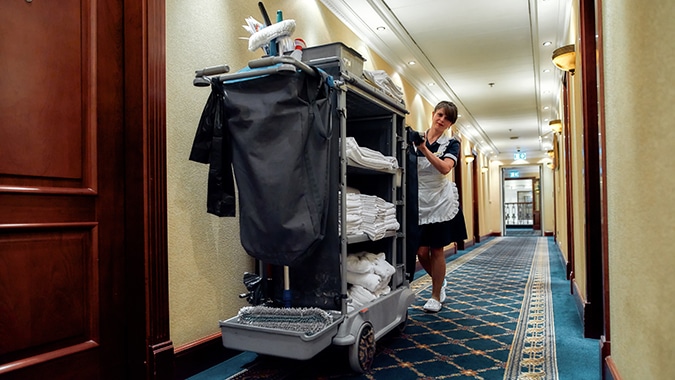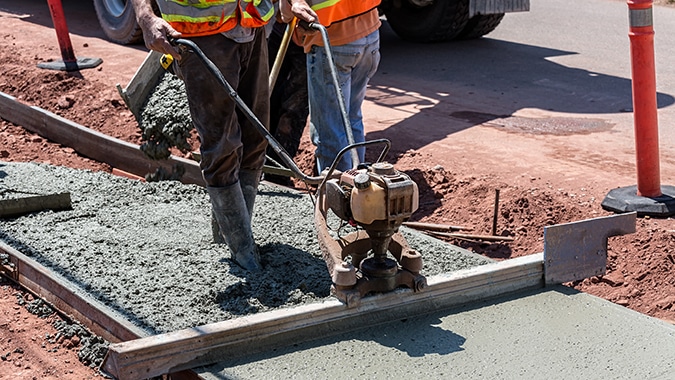NJDOL and the New Jersey Restaurant and Hospitality Association will co-host a webinar next week to raise awareness among hotel employers of their responsibilities under the Panic Device Law that aims to protect housekeeping and room service staff who work alone in guest rooms.
The one-hour webinar for hotel owners and managers will take place 11 a.m., Thursday, Feb. 22 on the Zoom video conferencing platform. To register, go to the NJRHA website here.
NJDOL said Friday that it is “conducting a focused effort on enforcement” and that the webinar is intended to help raise awareness of the law that took effect Dec. 1, 2019.
The Panic Device law is meant to protect hotel employees who work alone in guest rooms at large hotels, motels and inns from sexual assault, harassment and other dangerous working conditions by equipping them with a device they can wear or carry that can immediately summon help if the need arises.
“Hospitality workers often work in isolation, during early morning or late-night hours, leaving them vulnerable to unique dangers,” said Labor Commissioner Robert Asaro-Angelo. “Additionally, these workers may not be familiar with their work rights or have the courage to speak up, so this law provides a needed safety net for this vulnerable worker population.”
Under the law, hotels with 100+ guest rooms must equip all full and part-time staff assigned to work alone in guest rooms with panic devices. With an easy touch, tap or voice signal, an employee must be able to summon assistance from a security officer, supervisor or other appropriate hotel staff member if they feel they are in danger or are witnessing a crime.
The hotel/motel employer must advise guests that staff possess the devices, either by requiring them to acknowledge the policy upon check-in or by posting signs inside guest room doors detailing the panic device policy and the rights of hotel employees.
The law requires hotels to keep a record of the accusations it receives and maintain the name of the accused guest on a list for five years from the date of the incident, and suspected misconduct or criminal activity must be reported to law enforcement. The law explicitly prohibits employers from punishing an employee who activates a panic device.
In addition, the employer must notify other employees of the presence and location of any accused guests and allow them to opt out of servicing such locations. The hotel/motel must also immediately reassign the hotel employee who activated the panic device to a different work area away from the accused guest’s room for the duration of their stay.
Hotels that violate the law can be subject to a civil penalty of up to $5,000 for the first violation and $10,000 for subsequent violations.
To view updated guidance or read more about the law, go here.

